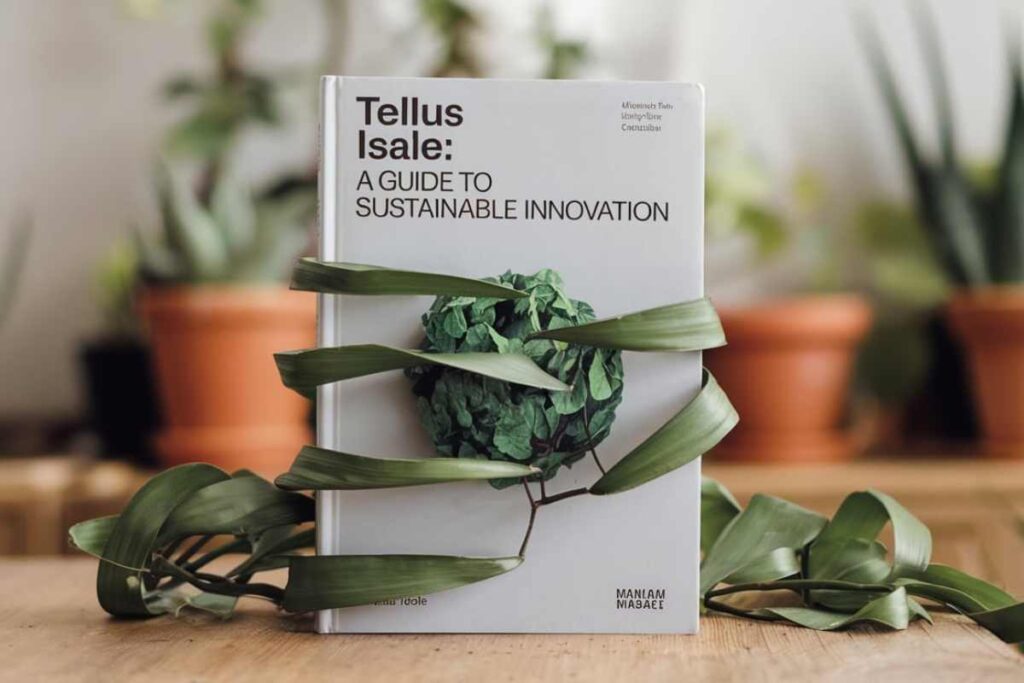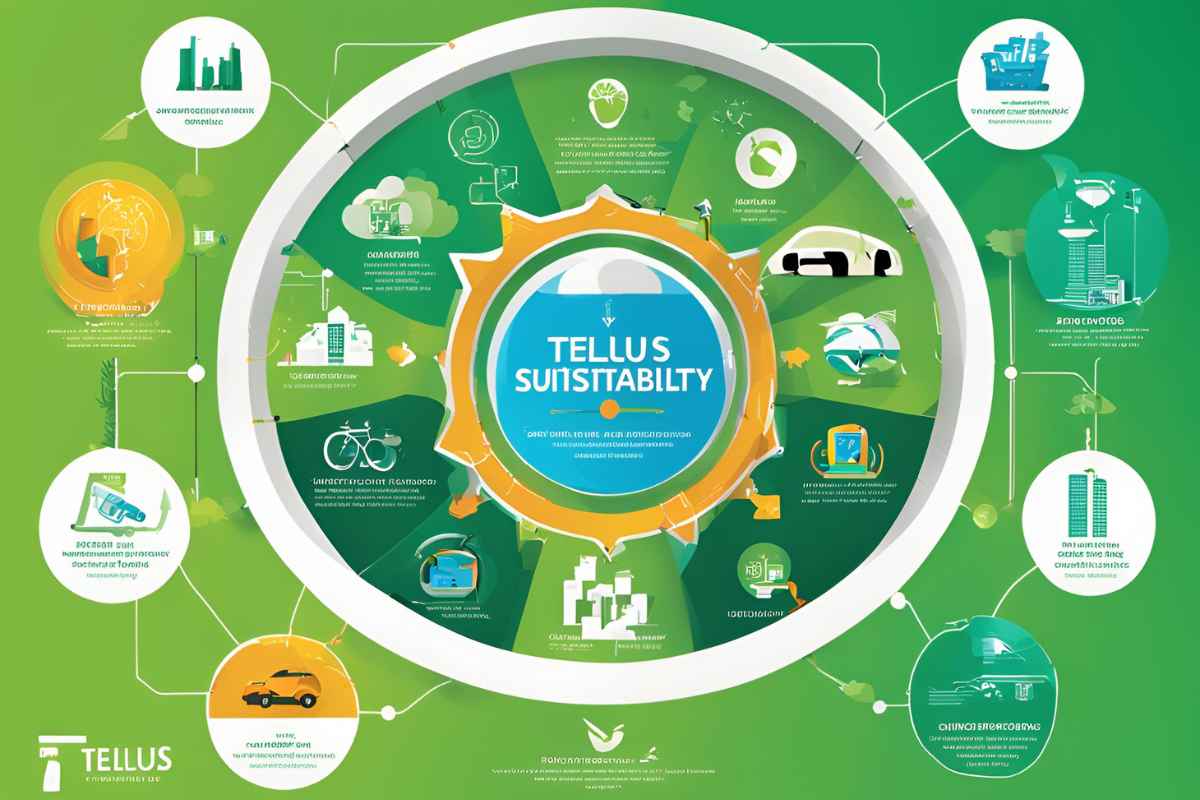In today’s fast-evolving world, sustainability and operational efficiency are more crucial than ever.
Tellus Isale is emerging as a transformative framework integrating these principles into various industries. From agriculture to healthcare, technology to business, adopting Tellus Isale practices is paving the way for responsible growth and innovation.
This article explores how Tellus Isale is revolutionizing industries, its core benefits, and why it’s essential for the future of sustainable development..
What is Tellus Isale?

Tellus Isale is an innovative approach that blends technology with sustainability, aiming to solve modern challenges related to resource management, environmental conservation, and operational efficiency.
Derived from Latin, “Tellus” means Earth, and “Isale” refers to a solution or ease, making it a strategy designed for the benefit of our planet.
Incorporating Tellus Isale principles into business operations enables industries to balance growth with environmental responsibility, leading to a more sustainable future.
Why Tellus Isale Matters
As global industries face increasing pressure to meet sustainability goals, Tellus Isale offers a roadmap for businesses to:
- Reduce environmental impact
- Optimize resource usage
- Enhance decision-making
- Lower costs through improved efficiency
This adaptable framework allows companies to make significant strides toward sustainable development while maintaining profitability.
Applications Across Industries

Agriculture: Boosting Productivity While Conserving Resources
In agriculture, Tellus Isale supports sustainable practices that increase productivity while minimizing environmental harm. Key applications include:
- Precision Irrigation: Cutting-edge systems that reduce water consumption while maximizing crop yields.
- Soil Health Management: Techniques like crop rotation and organic fertilization to ensure soil vitality.
- Resource Optimization: Sensors and smart tools that monitor and optimize resource use in real time.
These practices not only preserve the environment but also help farmers achieve long-term profitability by reducing waste and ensuring sustainable farming.
Technology: Driving Innovation with Efficiency
The tech industry has embraced Tellus Isale’s principles to enhance resource efficiency and reduce its environmental footprint. Some of the ways it is shaping the sector include:
- Sustainable Data Centers: Minimizing energy consumption in server operations through better cooling and optimized infrastructure.
- AI and Machine Learning: Leveraging sustainable data processing methods that lower energy needs.
- Eco-friendly Devices: Smart devices that use less power, have longer lifespans, and generate less electronic waste.
These innovations not only support the planet’s health but also lead to cost savings and improved operational efficiency.
Business Operations: Increasing Efficiency and Reducing Waste
Tellus Isale is transforming business operations by encouraging companies to rethink their resource usage, reduce waste, and make better decisions. Here’s how it is impacting businesses:
- Process Optimization: Streamlining workflows to eliminate inefficiencies and save resources.
- Sustainable Supply Chains: Implementing eco-friendly sourcing, transportation, and storage practices to reduce carbon footprints.
- Waste Reduction: Using resource-efficient technologies to cut down on material waste and lower operational costs.
By prioritizing sustainability, businesses not only improve their environmental impact but also boost profitability and operational effectiveness.
Key Benefits
- Environmental Conservation: The focus on resource conservation and waste reduction helps businesses lower their environmental impact and contribute positively to global sustainability goals.
- Cost Savings: Improved resource management leads to lower operating costs, providing a significant advantage, especially for industries with tight margins.
- Enhanced Decision-Making: Data-driven insights enable businesses to make informed, sustainable decisions for long-term growth.
- Adaptability Across Industries: From agriculture to technology, it is scalable and adaptable to the unique needs of diverse industries.
Supporting Sustainable Development
it plays a vital role in supporting global sustainability efforts, including:
- Reducing Carbon Footprints: By minimizing resource use and waste, businesses can significantly lower their emissions.
- Encouraging Green Innovation: The principles of it promote the development of eco-friendly technologies that support a circular economy.
- Fostering Global Awareness: As more industries adopt these practices, the movement towards a sustainable future grows worldwide.
The Role in Sustainable Development
As more industries adopt sustainable practices, they remain key drivers of environmentally responsible growth. The principles of Tellus Isale support:
- Reducing Carbon Footprints: Using fewer resources helps companies reduce their emissions, aiding in the fight against climate change.
- Supporting Green Innovation: it encourages the development of eco-friendly technologies that support a circular economy, where resources are reused and repurposed.
- Promoting Global Awareness: it principles are adopted globally, showing that industries worldwide are committed to a sustainable future.
Real-World Examples

- Automotive Industry: Many car manufacturers are using it principles to design fuel-efficient vehicles with lower emissions.
- Healthcare Sector: Hospitals and clinics are adopting resource-saving technologies to reduce waste, conserve energy, and improve patient care.
- Renewable Energy: Companies in the renewable energy sector use it to optimize their resource use, maximize energy output, and reduce environmental impact.
Conclusion
Tellus Isale offers a powerful framework for industries striving to meet modern challenges and contribute to a sustainable future. By focusing on environmental conservation, operational efficiency, and sustainable growth, businesses across agriculture, technology, healthcare, and more are positioning themselves for a brighter, more responsible future.
Embracing Tellus Isale is not just about meeting sustainability goals; it’s about driving meaningful change that benefits both industries and the planet.
FAQs
What is Tellus Isale?
Tellus Isale is a sustainable approach that combines technology and environmental practices to reduce resource waste and improve industry efficiency.
How does it benefit agriculture?
In agriculture, it helps improve crop yields, conserve resources like water, and reduce environmental impact through efficient farming techniques.
Can small businesses use it?
Yes, it is adaptable for businesses of all sizes, helping small businesses cut costs, reduce waste, and improve operational efficiency.
What industries can apply it?
it is used in various industries including agriculture, technology, healthcare, manufacturing, and corporate sectors focused on sustainability.
How does it support sustainable practices?
Tellus Isale supports sustainability by promoting resource-efficient systems that reduce waste, conserve energy, and minimize environmental impact.
Is it expensive to implement?
While initial costs may vary, it ultimately saves money by reducing resource waste, improving efficiency, and lowering operational expenses.
How can it help reduce a business’s carbon footprint?
Optimizing resource use and encouraging energy-efficient practices helps businesses lower emissions and reduce their overall carbon footprint.
What is the future of it in technology?
Tellus Isale is expected to drive more eco-friendly innovations in tech, making future devices and systems more sustainable and energy-efficient.




